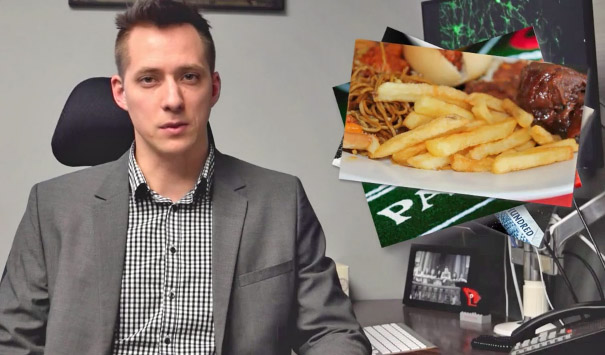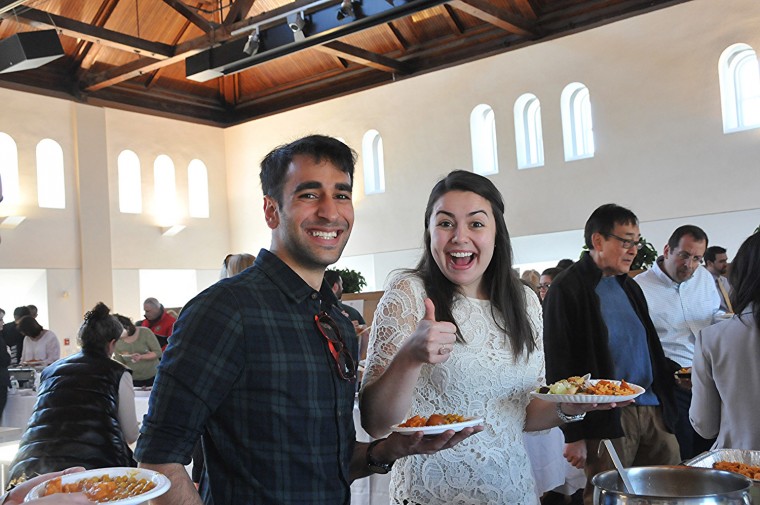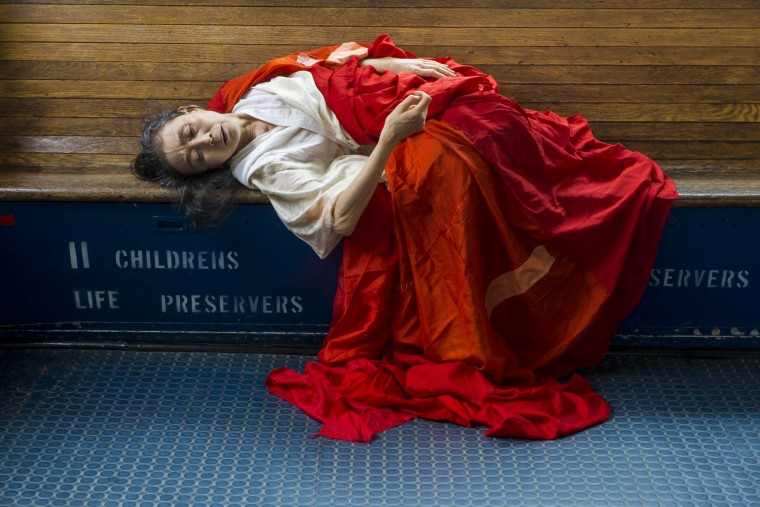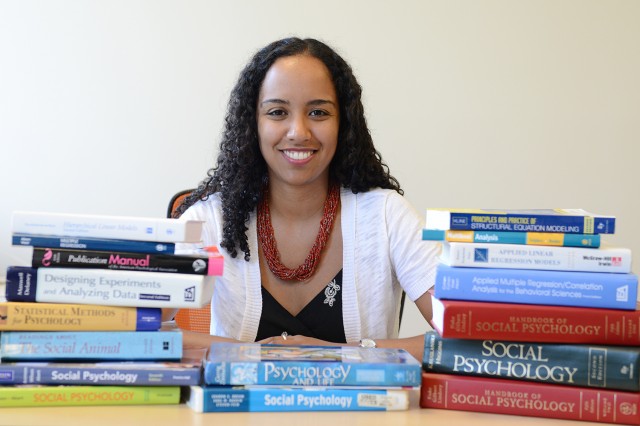Manju Hingorani, professor of molecular biology and biochemistry, was featured in the “Coordinates” section of ASBMB Today, the monthly publication of the American Society for Biochemistry and Molecular Biology. Here, Hingorani briefly reflected on her marriage and career through a haiku. Her haiku read: Home is where the lab is, was, will be, my partner he’s home too – elsewhere. She added, “I’m a professor of biochemistry, and my husband is a pharmacologist in the industry. We’ve lived under the same roof for about seven of our 19 years as a married couple. But it has been a fabulous life,…
A research paper co-authored in 1995 by Johan Varekamp, the Harold T. Stearns Professor of Earth Science; Ellen Thomas, research professor of earth and environmental science; and Wesleyan alumnae Koren Nydick ’95 and Alyson Bidwell ’95 has returned to the spotlight. The paper, “A Sea-level Rise Curve from Guilford, Connecticut, USA,” originally published in Marine Geology, was cited last month in another paper on sea-level rise in the Proceedings of the National Academy of Sciences of the United States. Professor Varekamp admits that the “paper has done remarkably well, with 93 citations, not bad at all for a senior thesis-based…
Four Wesleyan academic departments, from psychology to dance to chemistry to biology, are competing for grant funds through a new crowdfunding site specifically designed for research project fundraising. Experiment.com's Challenge Grant for Liberal Arts Colleges asked scientists to define a scientific research question for the crowd with a prize for the project with the most backers. The pilot launched on Feb. 24 and concludes March 25.During this 31-day period, the goal is to reach $4,000 in funding. If so, the team is granted the money. If not, they receive nothing and no one's pledges are charged. By backing a project, participants will receive updates, results and data from project creators. Wesleyan research include how the…
Three hundred faculty and staff filled Beckham Hall for a feast of food and drink provided by 18 vendors at the fifth annual Taste of Middletown on March 9. Offerings ranged from empanadas, a macaroni and cheese bar, salads, chicken tikka masala and vegan spring rolls to a wide assortment of pastries and desserts and a variety of beverages. Wesleyan welcomed six new vendors to the event this year, including La Piastra, Red Fox, Iguanas Ranas, Taino Smokehouse, Fiore II, Mi Argentina and Mondo. (more…)
The Chronicle of Higher Education has published an excerpt from a new memoir by Christina Crosby, professor of English, professor of feminist, gender and sexuality studies. The book, A Body, Undone: Living On After Great Pain, is due out later this month from NYU Press. Crosby tells the story of how her life changed after a bicycle accident in 2003, just after her 50th birthday, left her paralyzed. According to the publisher, "In A Body, Undone, Crosby puts into words a broken body that seems beyond the reach of language and understanding. She writes about a body shot through with neurological pain,…
Are the liberal arts still relevant? President Michael Roth answered this question and more as a guest on "Essential Pittsburgh," a show on Pittsburgh's NPR station. As he argues in his book, Beyond the University: Why Liberal Education Matters, Roth explains, "There's an American tradition of liberal education that goes back as far as the origins of the country and emphasizes the pragmatic dimensions of broad, contextual study. It's not so much that you take Latin and Greek or that you study religion rather than, let's say, biology, it's that whatever you study, you study it in connection to other things, understanding how what you're focused on…
Hilary Barth and Andrea Patalano, associate professors of psychology, recently co-authored a paper in Psychonomic Bulletin and Review along with two former Psychology Department undergraduates, Laura Machlin and Jason Saltiel. The paper is titled, “The Role of Numeracy and Approximate Number System Acuity in Predicting Value and Probability Distortion.” When people make “risky decisions” like choosing between two gambles with different values and different probabilities of success, their choices appear to be based on distorted versions of both the values and probabilities. Although there are many theories attempting to explain the distortion, we don’t know exactly why it happens. This study…
In its recent meeting, the Board of Trustees conferred tenure on eight faculty members, effective July 1, 2015. They are: Associate Professor of Sociology Robyn Autry, Associate Professor of Government Sonali Chakravarti, Associate Professor of Molecular Biology and Biochemistry Amy MacQueen, Associate Professor of Music Paula Matthusen, Associate Professor of Molecular Biology and Biochemistry Rich Olson, Associate Professor of Mathematics Christopher Rasmussen, Associate Professor of Economics Damien Sheehan-Connor, and Associate Professor of Classics Eirene Visvardi. Brief descriptions of their research and teaching appear below: Associate Professor Autry is a cultural sociologist with broad interests in collective identity, memory, and visual culture. Her…
Michael Roberts, the Robert Rich Professor of Latin, professor of medieval studies, professor of classical studies, recently contributed his work, “Venantius Fortunatus and Gregory of Tours: Patronage and Poetry,” to a journal dedicated to providing an expert guide to interpreting the works and legacy of Gregory, Bishop of Tours (573-594) in religious and historical studies. Published in A Companion to Gregory of Tours, in December 2015, Roberts’ article looked particularly at the relationship between the historian of 6th century Gaul, Gregory, Bishop of Tours, and the Italian-born poet Venantius Fortunatus. Throughout his work, Roberts argues, “that Gregory was Fortunatus' patron and friend…
Justine Quijada, assistant professor of religion, assistant professor of Russian, Eastern European and Eurasian studies. recently co-edited a book titled, Atheist Secularism and its Discontents: A Comparative Study of Religion and Communism in Eurasia (Palgrave Macmillan 2015). Based on a workshop Quijada and her co-editor organized when they were at the Max Planck Institute for the Study of Religious and Ethic Diversity, the book examines a “comparative approach to understanding religion under communism, arguing that communism was integral to the global experience of secularism. It shows that appropriating religion was central to Communist political practices.” Quijada and her co-editor were interviewed about their work…
Building off research she did for her work "Body in Places" at Wesleyan in fall 2015, Visiting Instructor in Dance Eiko Otake will present a major platform at Danspace Project in New York City on March 11. The free talks include those by Wesleyan faculty members William Johnson, professor of history, professor of East Asian Studies, professor of science in society, professor of environmental studies, and Katja Kolcio, associate professor of dance, associate professor of environmental studies. March 11 marks the fifth anniversary of the earthquake, tsunami and nuclear disaster in Fukushima, Japan. A photo collective by Eiko and Johnston will be…
A paper by Assistant Professor of Psychology Clara Wilkins, Alexander Hirsch '13 and Michael Inkles '12 has been published in the journal Group Processes & Intergroup Relations. Titled, "The threat of racial progress and the self-protective nature of perceiving anti-White bias," the paper describes two studies in which the researchers examine whether racial progress is threatening to whites, and if perceiving anti-white bias assuages that threat. The first study showed that whites primed with racial progress—by reading an article on social advancement by minorities—exhibited evidence of threat: lower implicit self-worth relative to the baseline. The second study replicated the threat effect…





